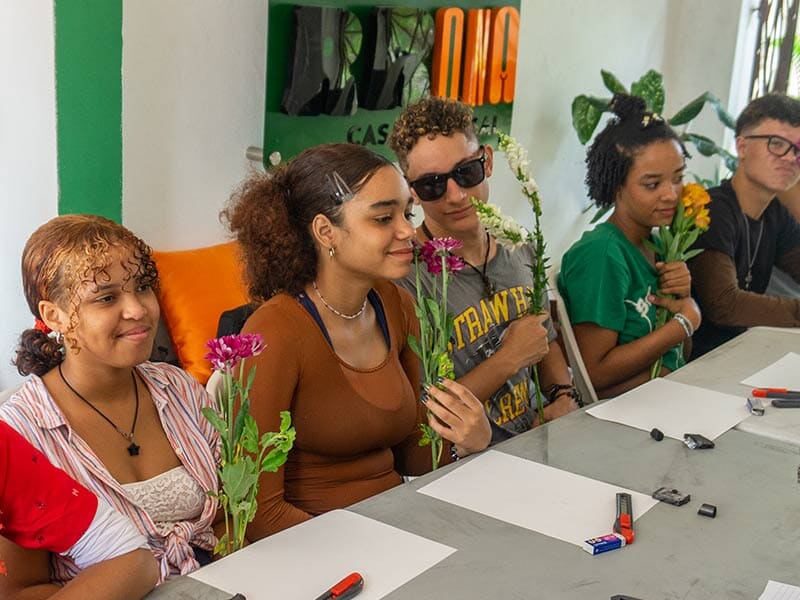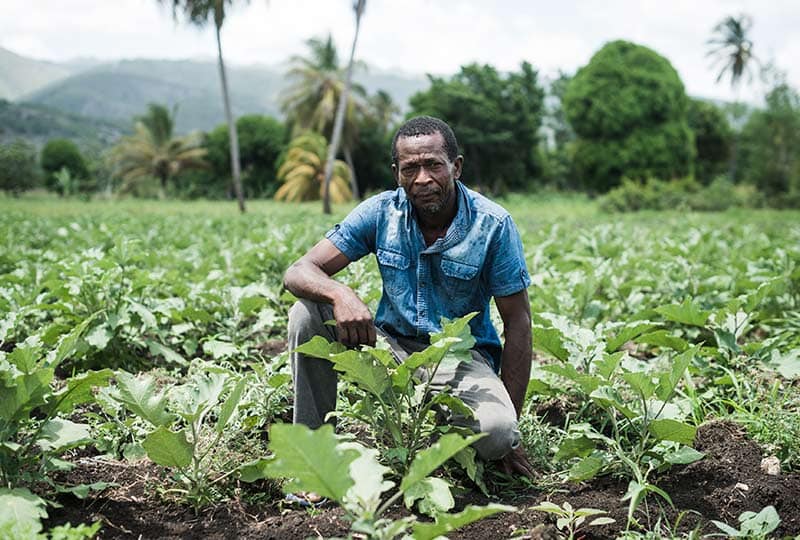
Every Saturday in Batey Carmona, a rural village in the Dominican Republic, a few dozen girls and young women gather at the local church to stitch felt, yarn and cotton into dolls. With dark eyes and black skin, the dolls look like the girls and women who create them — which, in this country, is a revolutionary concept.
These gatherings are part Muñecas Negras (”Black Dolls”), a growing initiative of AJWS‘s longstanding partner Reconoci.do. For a few hours, volunteer facilitators lead collectives of girls and young women to make handmade dolls, and then lead discussions about identity, leadership, gender equality, education and history. These two activities may seem unrelated — but together they help embolden the collectives to expand what they believe possible in their own lives.
Blackness in the Dominican Republic is tied not just to race, but also ethnicity, ancestry and nationality. While the majority of Dominicans are of mixed race, the label “Black” is overwhelmingly applied only to Haitians, and the descendants of Haitians (known as Dominican of Haitian Descent) who crossed the border to live in the Dominican Republic. This community faces extreme xenophobia and oppression—and many were thrust into statelessness in 2014 when the Dominican supreme court retroactively stripped them of their nationality, thereby severing their access to education, employment and healthcare.
AJWS grantee Reconoci.do is on the frontlines of this human rights crisis. While they fight against systemic and legal persecution, they’ve also launched programs to help Dominicans of Haitian descent embrace who they see in the mirror.
“In the Dominican Republic, they tell you that the blacker you are, the less you’re worth. And I’m here to say: We are dark skinned, and we accept ourselves,” says Yanilda Antelis Juan, a Muñecas Negras volunteer in Batey Carmona. “I feel proud of who I am. And 1,000 earthquakes could not separate me from my identity. Accepting myself is the most powerful thing I’ve achieved in 23 years of life.”
Below, step into a Muñecas Negras workshop in action. Then read on to meet Yanilda’s family — seven of whom have been part of this groundbreaking initiative.










